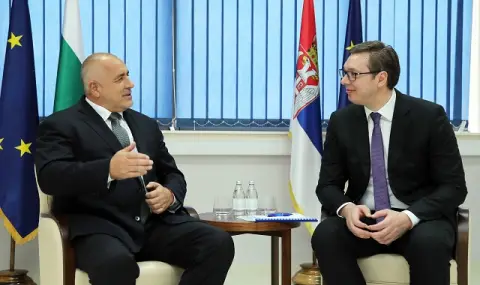Serbian President Aleksandar Vučić sharply criticized Bulgaria's foreign policy and the European Union itself during the international security conference "GLOBSEC 2025", held in Prague. In a statement that caused a wave of comments, he called the EU enlargement process "a political decision", devoid of an objective assessment of merits, BGNES quotes him as saying.
"There is always one country in the EU that has objections to a new candidate. For North Macedonia, this is Bulgaria, for Serbia - Croatia and some other countries", Vučić said during the panel "Seize the Moment: Creating Lasting Partnerships in the Neighborhood". He stressed that such an approach undermines confidence in the European perspective for the Western Balkans.
The President of Serbia even indicated that he himself may bear some responsibility for the declining popularity of the EU in his own country:
"20 years ago, 80% of Serbs were in favor of joining the EU. Today, this percentage has dropped to 40. It is not only in Serbia - in North Macedonia, skepticism is even stronger."
Vučić emphasized that the reasons for this are not rooted in Russian influence, but in disappointments over unfulfilled expectations and the lack of a clear commitment from the EU. "Joining the EU is a political decision, not based on merit, although it is often claimed otherwise", he said, citing the 2007 accession of Romania and Bulgaria as an example.
"People in Europe talk about a merit-based approach, but that has never been the case. Accession has always been the result of political will, not an objective assessment," Vučić added.
The panel, in addition to Vučić, also included former EU Special Representative for the Belgrade-Pristina Dialogue Miroslav Lajčák, former Austrian Chancellor Alexander Schallenberg and Armenian Prime Minister Nikol Pashinyan.
